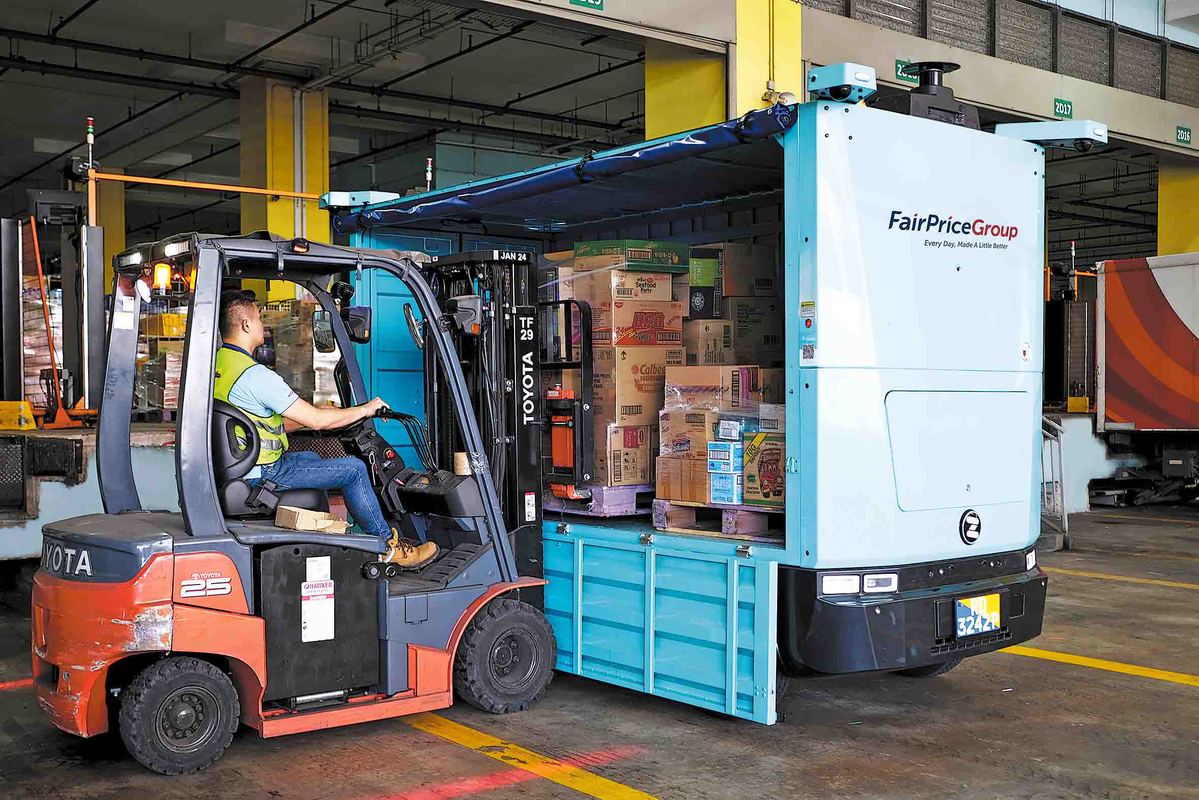Zelos eyeing overseas expansion
Autonomous vehicle maker sets sights on SE Asia, Middle East, European markets


Zelos Group Inc, a Suzhou, Jiangsu province-based developer of Level 4 autonomous logistics vehicles, will ramp up efforts to expand its overseas footprint in countries and regions including Singapore and the Middle East, while consolidating its presence in China's fast-growing urban logistics sector, said senior executives.
The vehicles are capable of driving without human intervention in specific urban logistics scenarios, such as last-mile delivery tasks and short-range freight assignments, according to information released by Beijing Jiaotong University.
Officially entering the overseas market in early 2023, Zelos set up a major operations base for offshore business in Singapore, a strategic move aimed at accessing Southeast Asian, Middle Eastern and European markets.
The Chinese firm secured Singapore's first permit for operating fully autonomous logistics vehicles on public roads in May 2024. Leveraging this regulatory breakthrough, the company is now working toward license approvals in the United Arab Emirates, Saudi Arabia and the United States using a hybrid model of direct subsidiaries, joint ventures and local partnerships.
Terry Zhou, managing director of Zelos Technology (Singapore) Pte Ltd — Zelos Group's overseas arm — said the number of the company's autonomous logistics vehicles operating on Singapore's thoroughfares will rise from three at present to 10 by the end of the year.
"When we first began doing business overseas, there were no clear rules allowing fully driverless Level 4 logistics vehicles on public roads. Most countries had not yet created laws for this kind of technology," said Zhou.
"So, we collaborated with local partners to advance the legal process and encouraged governments to set up proper regulations," he said. "At the same time, we shared our experience and technology with regulators to help bring our proven driverless solutions from China to other countries."
To achieve its goals, Zelos Group plans to scale up to over 1,000 employees within two years and expand its manufacturing capacity in South China.
Unlike consumer goods, obtaining regulatory approval for autonomous vehicles overseas is far more complex. The licenses are typically issued not by local or municipal authorities, but by national-level transportation ministries. This means the approval process involves multiple layers of oversight across an entire country, making it more time-consuming.
"Moreover, many countries still lack specific laws that allow autonomous vehicles to operate on public roads, so industry players need to do a great deal of groundwork in advance," said Pan Yuchang, general manager of Zelos Group's marketing department.
Highlighting that markets like the Middle East are extremely promising due to high labor costs and government support for innovation, Pan said the company's overseas team is working closely with local regulators in related work and accelerating commercialization.
Domestically, Zelos Group is capitalizing on favorable provincial policies in Shandong and Jiangsu provinces, where local governments have rolled out roadmaps for low-speed autonomous logistics vehicles.
Pan said that these provinces are now among the most active deployment zones for Zelos Group's autonomous vehicles, which have already been integrated into operations by logistics companies, pharmaceutical distributors and even cold-chain food suppliers.
Zelos Group to date has supplied autonomous logistics vehicles to 190 cities domestically and provided support services for buyers.
"We are expecting to see wider provincial adoption as more local governments follow Shandong and Jiangsu provinces' lead in issuing regulatory guidelines," said Pan.
Meanwhile, Zelos Group is expanding into China's hinterlands, including the Xinjiang Uygur autonomous region and Guizhou province, where vehicle testing and local government engagement are already underway.
Ji Xuehong, a professor at the School of Economics and Management at Beijing-based North China University of Technology, said Chinese companies' ongoing global expansion in autonomous driving reflects the broader competitiveness of the country's high-end electromechanical products in international markets.
Zhang said the export of smart logistics equipment, autonomous vehicles and industrial automation systems not only meets global demand for intelligent solutions, but also drives innovation and supply chain upgrades within China.




































